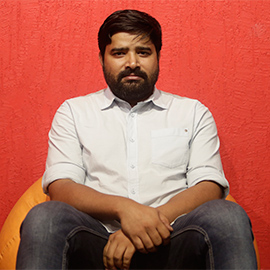Yadav family feud: Mayawati, not BJP, will be the real beneficiary

Things seem to be falling in place for Mayawati who seeks to secure a fifth term as chief minister of Uttar Pradesh. Working towards creating a potent Dalit-Muslim combine in the upcoming UP assembly elections, Mayawati's hopes of capturing a significant share of the nearly 20% of the Muslim vote received a shot in the arm with the ongoing rift in the Yadav clan.
The SP feud also gives Mayawati an opportunity to consolidate her position among the Muslims and present herself as the party best placed to keep BJP out of power. She knows how crucial this vote bank is in her quest for power and 2012 was a case in point. After the results of the last assembly elections were announced, she accepted how 70% of the swing of Muslims votes in favour of SP led to her loss.
With 21% of her Dalit vote bank intact, she seeks a similar mandate from the minority community to reverse her fortunes in the 2017 elections. After all in the 2007 and 2012 assembly elections both BSP and SP obtained majority with just 30% of the total votes.
The recent developments in the SP should especially be unnerving for the Muslims who have traditionally backed the party and overwhelmingly voted in its support as witnessed in 2012. The rise in incidents of communal violence across the state has further alienated the community from the SP and this is likely to work in Mayawati's favour.
Mayawati's efforts
Well aware of the ground realities, Mayawati is leaving no stone unturned in her bid to woo this crucial section. Unlike 2007 and 2012, Mayawati has allotted close to 100 seats as compared to 61 and 83 respectively. Even the location of her rallies is a testimony of her reaching out to not only to Dalits but also to Muslims.
Moreover, BSP has also been quietly making inroads amongst the marginalised sections amongst the Muslims, especially the Dalit and OBC Muslims. "The party is increasingly active in the hamlets and slums of Muslim social groups like Ansari, Gaddi, Tatwa, Fakir, Halalkhor etc. This time, the party is not attempting to exploit class and caste differences among the Muslims, though it often highlights the issues of poor Muslims. The phrase 'poor Muslim' invokes the category of class, without breaking away from Kanshi Ram's idea of poor Muslims being a part of bahujan unity, which includes Dalits, MBCs and OBCs.," Allahabad-based political analyst Badri Narayan wrote in The Indian Express.
Mayawati's is specially focussing on Dalit and Muslim dominated areas for her rallies
Even the choice of locations for holding rallies is strategic. Till now, she has held rallies in Agra, Azamgarh, Allahabad and Saharanpur that have significant Dalit and Muslim populations. And, in each of her rallies she launched frontal attacks on the BJP, especially Prime Minister Narendra Modi and BJP president Amit Shah, and the party's communal agenda. "Ever since BJP has come to power, Muslims are being targeted and the right-wing forces are exploiting them," she said in Agra.
The Yadav family dispute has come as a setback for the BJP that has been counting on a split in the Muslim vote between the SP, BSP and Congress as had happened during the 2014 General Elections. The split helped BJP win 71 out of the 80 seats in 2014 with a total vote share of 42.3%. BJP leaders believe a similar split could help it emerge as a single largest party after a gap of 14 years. Mayawati's BSP was reduced to zero.
Ever since its phenomenal victory in 2014, BJP was seen as a front runner, but recent events, especially attacks on Dalits and Muslims has given Mayawati an opportunity to woo these two segments that hold the key to who rules the state that defines the predominant narrative of India's politics. Her image of being a hard taskmaster with a good record of maintaining law and order should also appeal to Muslims who have lately been skeptical of SP on that front.
First published: 16 September 2016, 11:19 IST






![BJP's Kapil Mishra recreates Shankar Mahadevan’s ‘Breathless’ song to highlight Delhi pollution [WATCH] BJP's Kapil Mishra recreates Shankar Mahadevan’s ‘Breathless’ song to highlight Delhi pollution [WATCH]](https://images.catchnews.com/upload/2022/11/03/kapil-mishra_240884_300x172.png)

![Anupam Kher shares pictures of his toned body on 67th birthday [MUST SEE] Anupam Kher shares pictures of his toned body on 67th birthday [MUST SEE]](https://images.catchnews.com/upload/2022/03/07/Anupam_kher_231145_300x172.jpg)






